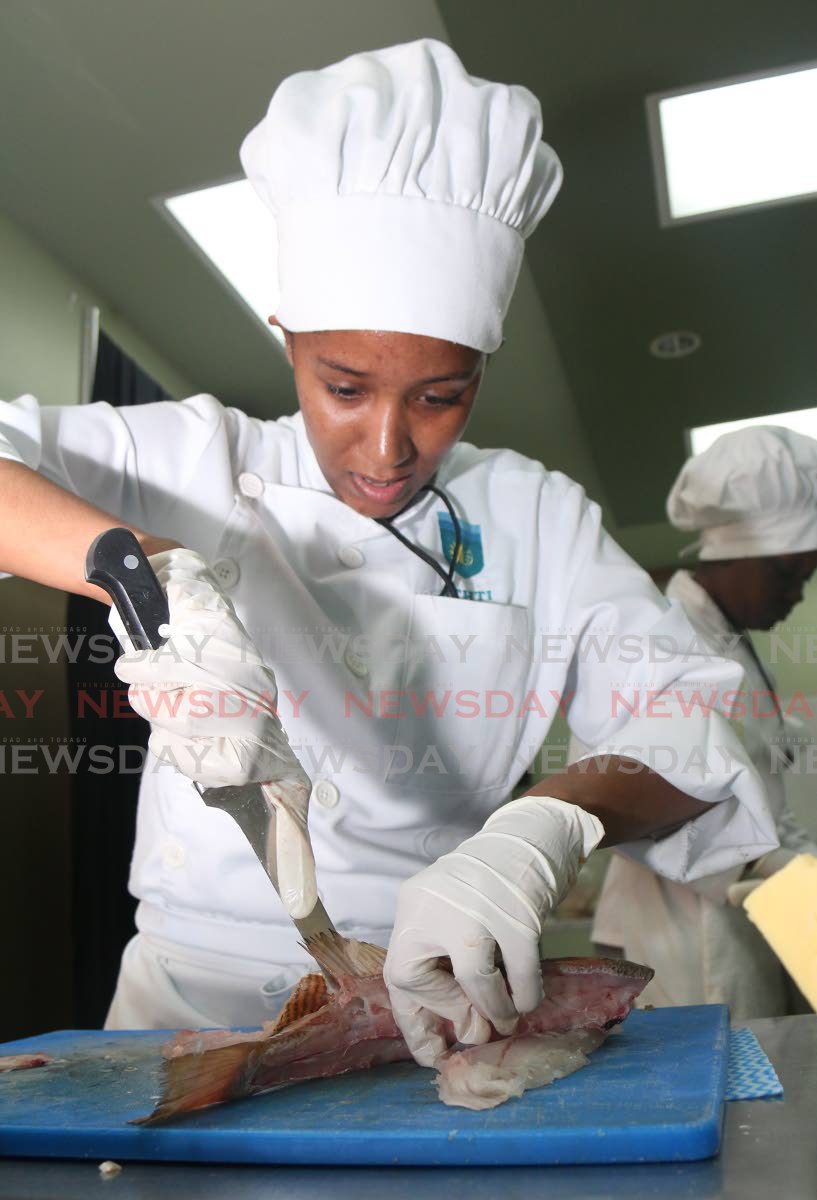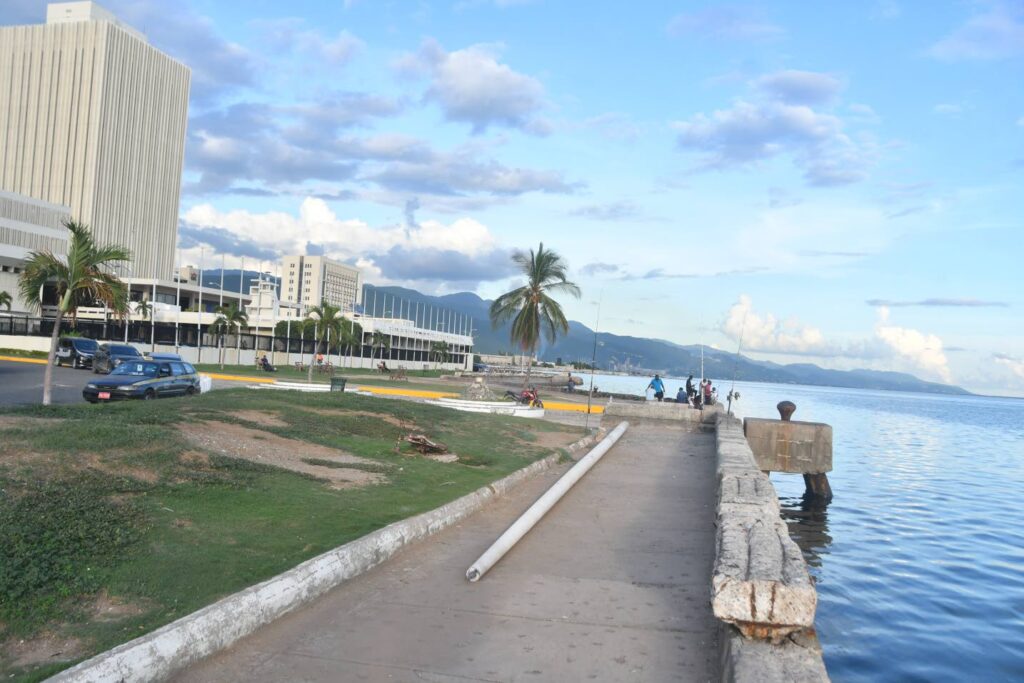Brittany Jno-Baptiste, a 24-year-old woman currently serving a 27-year prison sentence for the 2021 murder of 66-year-old Jane Finch, has initiated an appeal against her conviction. Her legal team contends that the sentence is disproportionately severe and points to alleged inconsistencies in the case, particularly concerning the application of diminished responsibility—a legal principle that considers whether the defendant fully understood the nature of their actions at the time of the crime. Jno-Baptiste admitted to killing Finch at her Piccadilly residence while experiencing hallucinations. Forensic evidence revealed that Finch was discovered with a pair of pliers lodged in her ear, a detail that underscored the brutality of the incident. A defense psychiatrist testified that Jno-Baptiste suffers from Cannabis-Induced Psychotic Disorder, alongside lifelong mental health conditions such as dyslexia and ADHD, which reportedly impaired her cognitive functions during the event. Her family has voiced concerns that her mental health issues were inadequately addressed during the sentencing process. Even if the appeal results in a reduced sentence, Jno-Baptiste is expected to remain incarcerated for several years. The case has reignited discussions about the intersection of mental health and criminal justice, raising questions about the adequacy of legal frameworks to address such complex scenarios.
分类: society
-

Tancoo: Hotel school to be reopened
In a significant move to revive the hospitality and tourism sector, Finance Minister Davendranath Tancoo has announced the government’s plan to reopen the TT Hospitality and Tourism Institute (TTHTI) in Chaguaramas. The institute, which was established to train professionals in the hospitality industry, including chefs and support staff, ceased operations in 2020 due to COVID-19 restrictions and the non-payment of subventions by the previous administration. The TTHTI had been operational for approximately two decades before its closure. Minister Tancoo also hinted at similar developments in Tobago, indicating a broader effort to bolster the sector. Further details regarding the reopening are expected to be provided by the Trade, Investment, and Tourism Minister, Satyakama Maharaj. This initiative is seen as a crucial step in addressing the skills gap and supporting the recovery of the hospitality and tourism industry post-pandemic.
-

Ashe wins TTUTA presidency by landslide
In a decisive electoral triumph, Crystal Ashe has been elected as the new president of the Trinidad and Tobago Unified Teachers’ Association (TTUTA). The election, held on October 14, saw Ashe secure a commanding victory, amassing 3,546 votes—more than triple the tally of outgoing president Martin Lum Kin, who received 1,019 votes. Ashe’s total also surpassed the combined votes of all other presidential candidates, solidifying her position as the clear choice among educators.
-

US to carry out third execution this week
A Mississippi man convicted of heinous crimes is set to face lethal injection on Wednesday, marking the third execution in the United States this week. Charles Crawford, 59, was sentenced to death for the 1994 rape and murder of Kristy Ray, a 20-year-old college student. The execution is scheduled for 6:00 pm Central Time (2300 GMT) at the Mississippi State Penitentiary in Parchman.
This execution follows two others carried out on Tuesday in Florida and Missouri, with another planned for Friday in Arizona. Richard Djerf, 55, will be executed for the brutal 1993 murders of four members of a Phoenix family. So far this year, the US has seen 37 executions, the highest number since 2013, when 39 inmates were put to death.
Florida leads the nation with 14 executions, followed by Texas with five, and South Carolina and Alabama with four each. The majority of these executions have been conducted via lethal injection, though alternative methods such as firing squad and nitrogen hypoxia have also been employed. The latter method, involving the pumping of nitrogen gas into a face mask to induce suffocation, has drawn criticism from United Nations experts, who deem it cruel and inhumane.
While 23 US states have abolished the death penalty, three others—California, Oregon, and Pennsylvania—have imposed moratoriums. President Donald Trump has been a vocal advocate for capital punishment, calling for its expanded use for the most severe crimes since his first day in office.
-

NEPA urges caution at beaches this Heroes’ weekend
KINGSTON, Jamaica — As Jamaicans prepare to flock to the beaches during the National Heroes’ weekend, the National Environment and Planning Agency (NEPA) has issued a strong call for vigilance and adherence to safety guidelines to prevent accidents and ensure a safe holiday experience. The agency’s warning comes in response to recent drowning incidents at the nation’s beaches, highlighting the need for heightened caution. Anthony McKenzie, Director of Environmental Conservation and Management at NEPA, emphasized the importance of using licensed beaches under the Natural Resources Conservation Authority (NRCA) and encouraged the public to consult NEPA’s beaches web page for detailed information. To promote safety, NEPA has shared essential beach safety reminders, including monitoring weather conditions, swimming only in lifeguarded areas, staying hydrated, observing warning signs, supervising children, and avoiding solo swimming. Additionally, NEPA urged beachgoers to adopt environmentally friendly practices, such as proper garbage disposal, to protect marine life and maintain the pristine condition of Jamaica’s coastline.
-

Case dropped after credit union worker repays $2.6m, but…
KINGSTON, Jamaica — In a significant legal development, former credit union employee Dianne Thompson was discharged from a multimillion-dollar larceny case on Tuesday by Parish Court Judge Paula Blake Powell. Thompson had been accused of embezzling $2.6 million from 25 customers of the credit union where she was previously employed. She faced 22 charges, including simple larceny and unauthorized access to computer data, to which she pleaded not guilty. The case was dismissed after it was confirmed that Thompson had repaid $2.7 million to the credit union, exceeding the initial amount she was accused of stealing. However, further investigations revealed additional missing funds, bringing the total to over $6 million. Thompson had been instructed to repay the full amount by her case management date in October, but the remaining balance will now be addressed in a separate legal proceeding. The case highlights ongoing issues of financial misconduct and the complexities of restitution in such matters.
-

‘A complete mess’: UTech students frustrated with portal glitches
Students at the University of Technology (UTech) in Jamaica are expressing growing dissatisfaction with the institution’s online portal, citing a myriad of problems that have disrupted their academic experience. Issues range from difficulties in module selection and missed classes to late access to timetables and system crashes. The situation has left many students questioning the value of their tuition fees, which have been increasing without corresponding improvements in the portal’s functionality.
-

AI can helptackle crime
Artificial intelligence (AI) holds transformative potential in the realm of crime prevention, offering tools for predictive policing and more efficient identification of illicit activities. However, the financial burden of developing and implementing such advanced technology, particularly in smaller economies like Trinidad and Tobago (TT), raises significant concerns. Issues of affordability, transparency, and the risk of misuse or overreach must be carefully weighed against the potential benefits.
The COVID-19 pandemic has been exploited by various sectors, including food, freight, and utilities, as a pretext for unjustified price hikes. These practices, often shrouded in opacity, manipulate public perception and exacerbate economic hardship by eroding purchasing power. This tactic mirrors the dismissive stance of former US President Donald Trump, who famously labeled climate change as a ‘con job,’ highlighting a broader pattern of leveraging crises for economic gain.
Environmental policies present a stark dichotomy. While some global leaders advocate for green energy initiatives, major economies such as China, Iran, Russia, and Iraq continue to rely heavily on coal and fossil fuels, perpetuating the climate crisis. This inconsistency underscores the intricate interplay between economic interests and environmental sustainability, revealing the complexities of global energy politics.
In conclusion, whether addressing AI in crime prevention, economic manipulation, or climate policy, the necessity for transparency, responsible leadership, and strategic planning is paramount. Misinformation and diversionary tactics only hinder genuine progress, benefiting a select few while imposing significant burdens on the majority. The call for clarity and actionable solutions has never been more urgent.
-

A win against period poverty
The 2025 national budget marks a historic milestone by addressing period poverty, a critical issue that has long been overlooked. This groundbreaking inclusion is the culmination of relentless global and local feminist activism, which has successfully framed menstruation as a matter of public health, human rights, and gender equity. Finance Minister Davendranath Tancoo emphasized that period poverty severely impacts the health and educational opportunities of individuals who cannot afford menstrual hygiene products, thereby denying them equitable access to empowerment and confidence in daily activities such as attending school or participating in sports. Recognizing this, St Lucia has taken a pioneering step by allocating US$250,000 to support students struggling with the cost of feminine hygiene products. In his October 13 presentation, Minister Tancoo proposed the establishment of a Women’s Health Fund with an initial capital of $5 million, aimed at sustaining initiatives through tax-incentivized individual and corporate contributions. This fund will launch a pilot program to distribute free menstrual kits in educational institutions and provide comprehensive menstrual health education, targeting various groups including men and boys to foster inclusivity and dismantle stigma. The removal of VAT on pads and tampons in 2001 was a significant step, acknowledging these products as basic necessities for approximately half the population. However, period poverty extends beyond the cost of menstrual products; it encompasses the need for menstrual health education, safe and accessible sanitation facilities, and the elimination of stigma. The issue is particularly acute in disaster-affected areas, where the spectrum of sexual and reproductive health and rights must be integrated into disaster management. Addressing period poverty also requires robust health and family life education in schools, enabling adolescents to ask questions about their bodies, reproduction, and anxieties. Organizations like Feminitt have been at the forefront of this movement, advocating for legislative changes, increased research, and gender-responsive solutions that acknowledge the LGBTQIA+ community and people with disabilities. Crown Her TT, founded by medical and legal professionals, has amplified these efforts through a national campaign. The 2025 budget represents a significant victory for people who menstruate, girls, and women, and underscores the importance of mentoring and supporting youth-led peer activism.
-

Vacancy tax on idle properties proposed as part of waterfront’s economic revival
Renowned urban planner Brent Toderian has proposed a vacancy tax on unused properties as a potential strategy to stimulate economic activity in downtown Kingston, Jamaica. The suggestion was made during the fifth Maurice Facey Lecture, held at the Jamaica Conference Centre last week. Toderian, former chief planner for Vancouver, Canada, emphasized that while he is not advocating for immediate implementation, such a tax could incentivize property owners to repurpose derelict buildings and vacant lots for commercial or residential use.
